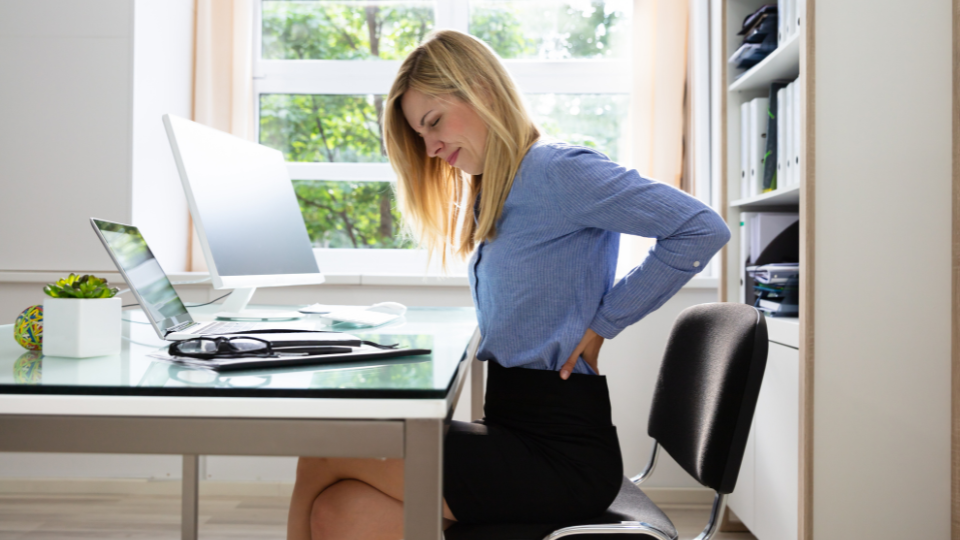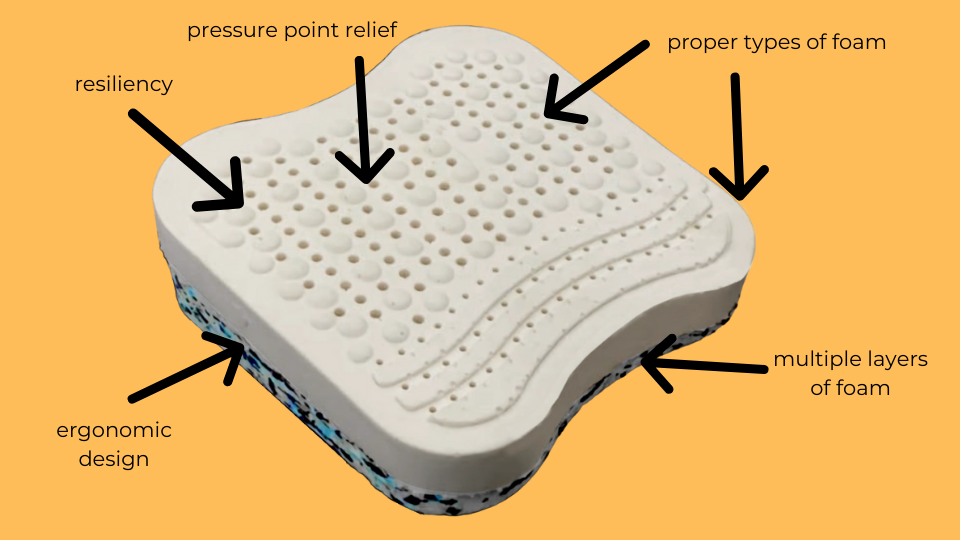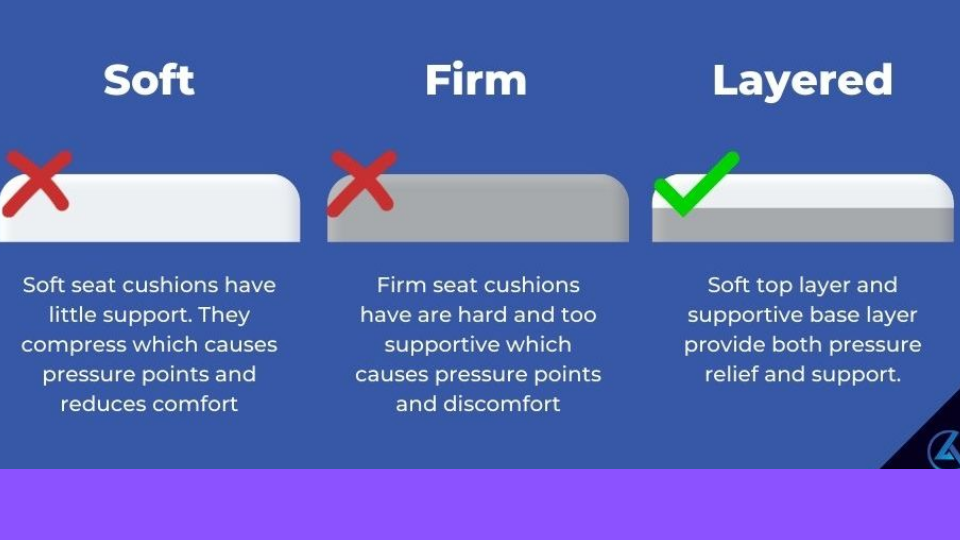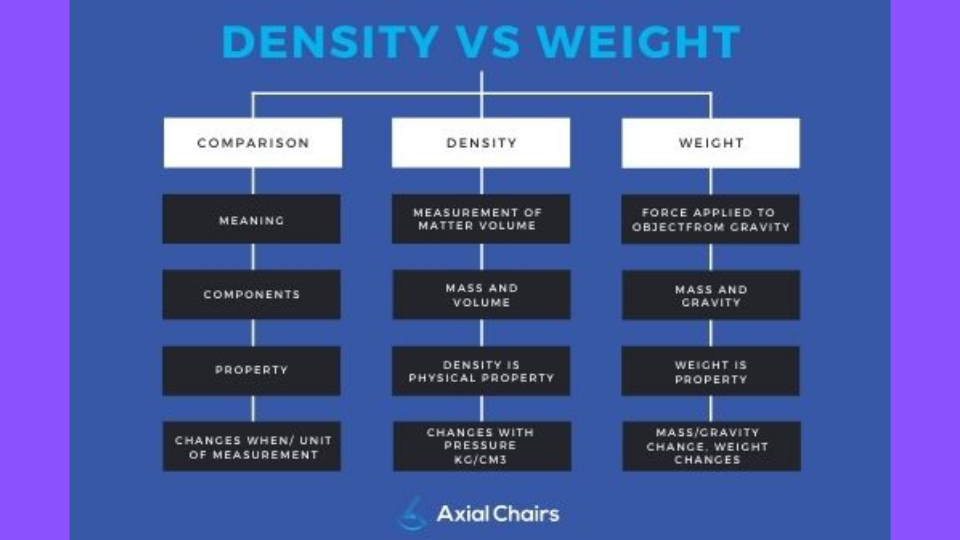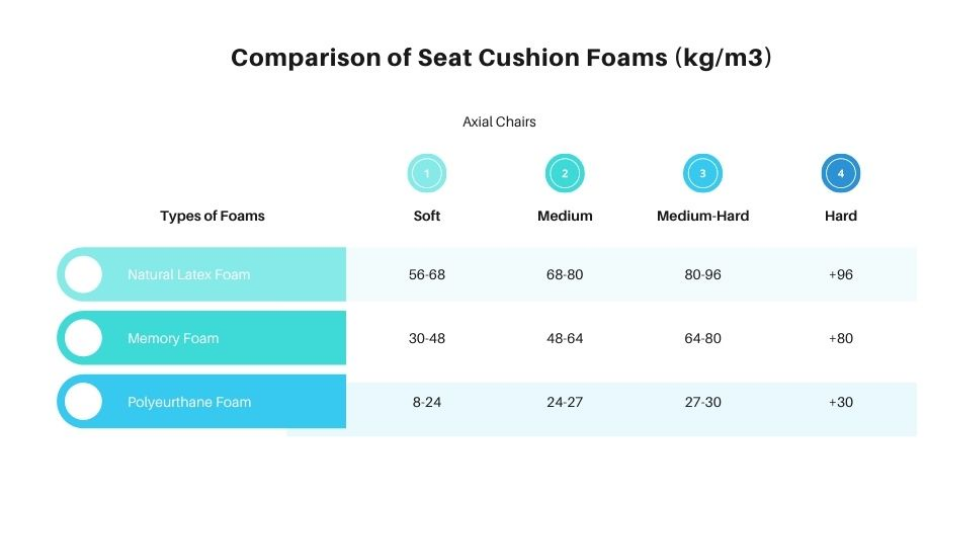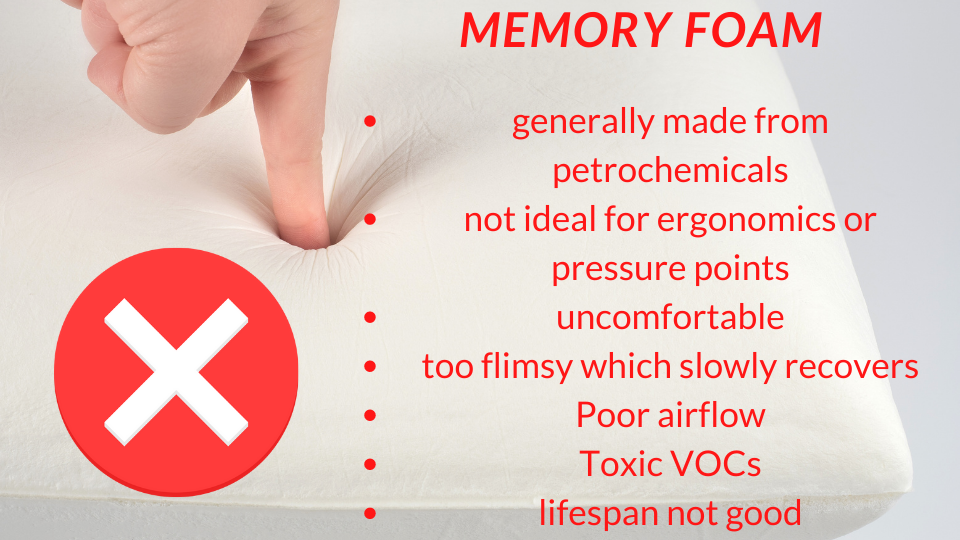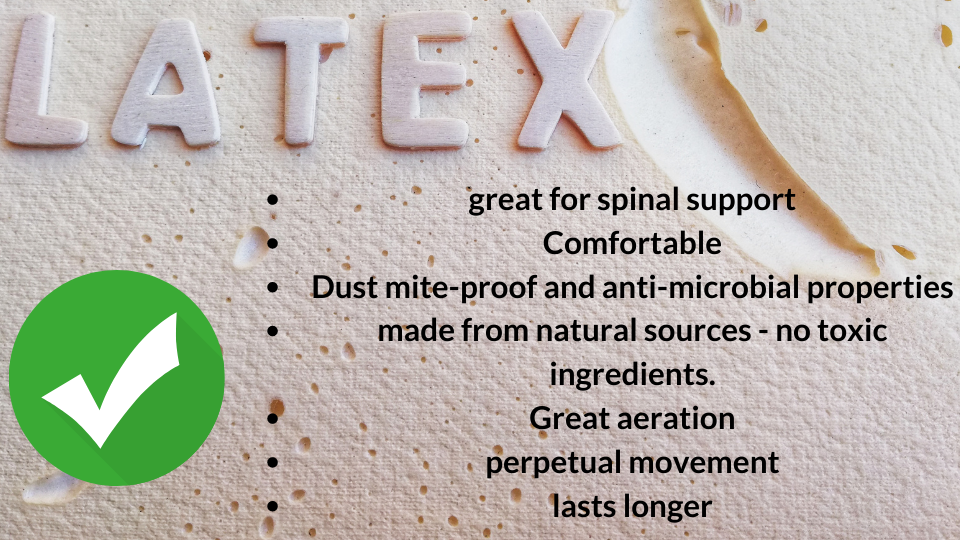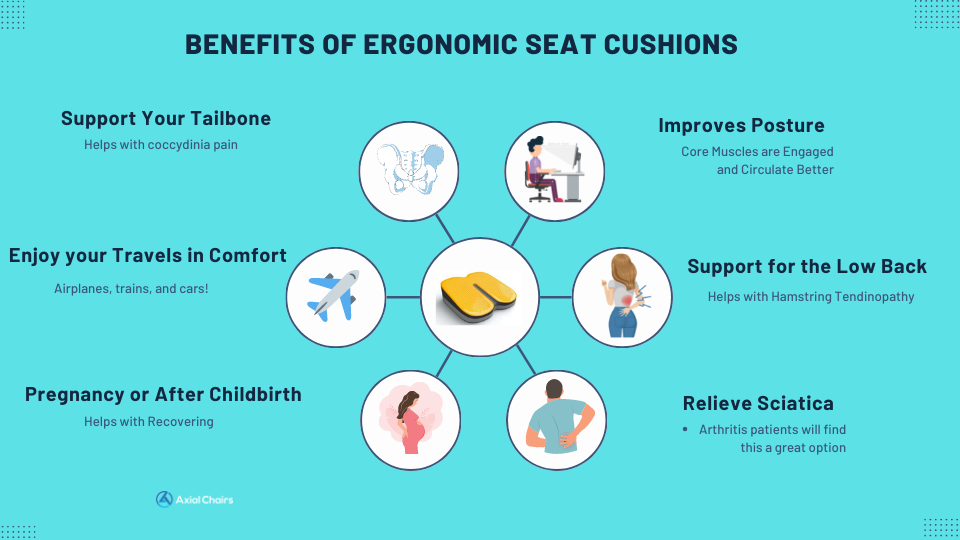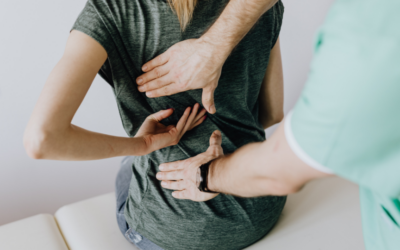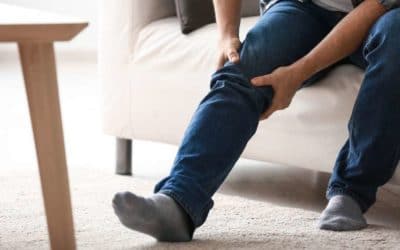If you are one of the many people who suffer from spinal stenosis, you know how important it is to have a good seat cushion. A quality seat cushion can help to relieve pain and make sitting more comfortable. Unfortunately, not all seat cushions are created equal. This blog post will discuss the best seat cushion for spinal stenosis and offer tips on choosing the right one.
As a general rule, the best seat cushions for spinal stenosis are usually made of natural latex and high-density foam having an 8-10 degree forward tilt. This combination provides both comfort and support.
*This is my opinion as a chiropractor and seat designer.
If you are experiencing spinal stenosis pain, I believe I can help. Having 30 years of experience as a chiropractor, I have worked as an ergonomist and physiotherapist for busy clinics. I have written a book on sitting and appeared on national television. My ergonomic seat cushions, orthopedic mattresses, and neck pain sleep orthopedic pillows are designed to achieve better posture and comfort while sitting. I also successfully funded my latest project, ergonomic seat cushions, through Kickstarter. So I am confident that I can provide some helpful insight!
What Is Spinal Stenosis?
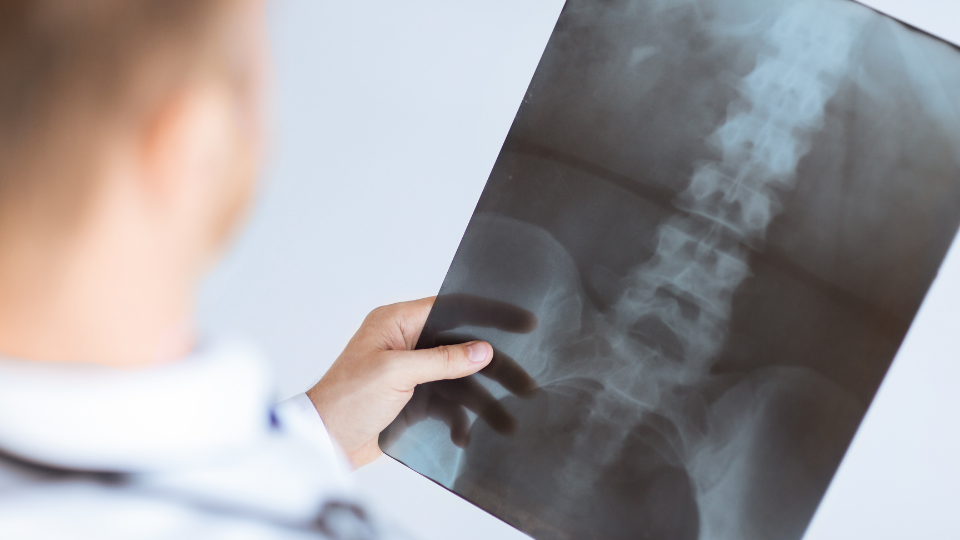
All Day Comfort & Support
What Causes Spinal Stenosis to Develop?
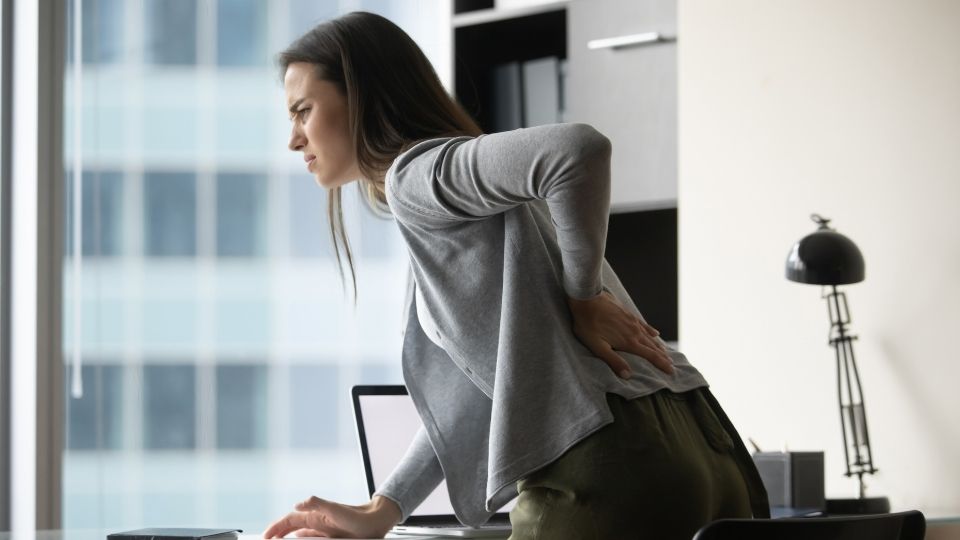
Does Everyone Get Spinal Degeneration With Age?

Can a Seat Cushion Help Relieve the Symptoms of Vertebral Stenosis?
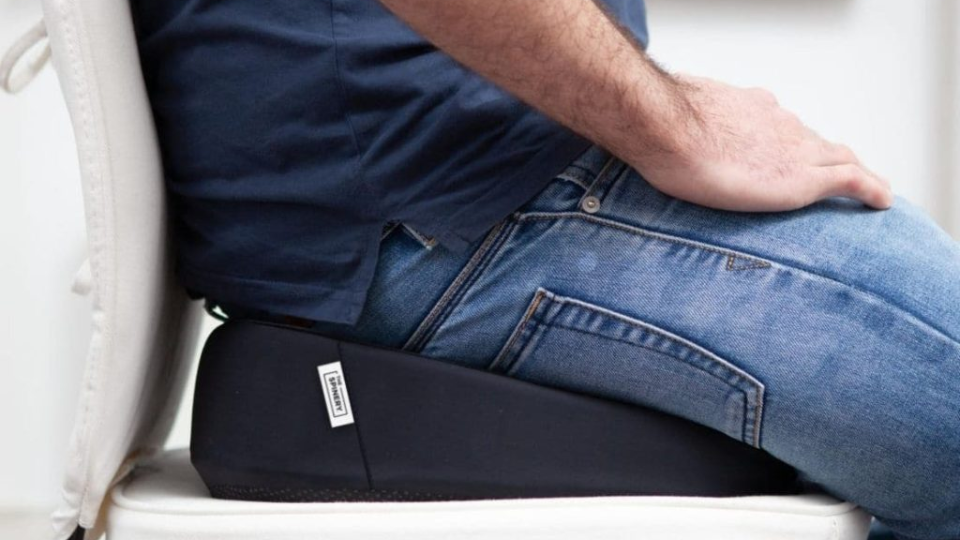
Black Friday: 35% Off Today
Typical Delivery 1-3 Days
Best Features of a Seat Cushion for Degeneration – Stenosis | Seat Cushion for Slipped Disc
In this TV show, I explain the features of an ergonomic seat cushion for people with back pain:
How Do You Know if the Seat Cushion Is Ergonomic?
To be effective, ergonomic seat cushions must have some key features, which are listed below:
Foam Cushion Seat
High-end back support chair cushions for spinal stenosis have multiple foam layers. Still, I recommend buying a cushion with high-density base foam and a softer natural latex foam top for increased comfort and durability.
Density of Chair Seat Cushion
It is vital to remember that many factors determine the quality of the best seat cushion for lumbar spinal stenosis, but one thing you can control is its density. Heavier foams provide better support and comfort than lighter ones because they weigh down into seats better, which also helps them maintain their shape over time.
Technical data:
- Base foam: 96kg/m3.
- Top foam: 56-68 kg/m3.
- It should be natural latex for top foam.
- Two layers of comfort and support, with no pressure points.
Densities
- Low – Although these cushions are suitable for small spaces, they are unsupportive and cannot be rolled up.
- Medium – This is an average and inexpensive type of foam.
- High – You can expect your seat cushion for a slipped disc to last longer and be able to take more abuse than other brands due to the durability of high-density foams.
All Day Comfort & Support
Different Types of Foams | Top Enhanced Seat | Support Pillow | Back Cushion | Lumbar Pillow | Back Support
Polyurethane Seat
Polyurethane foam seat cushions are not a good choice for people looking for comfort and luxury. These seats are made of cheap materials that lack any kind of resiliency. As a result, they are not comfortable and do not provide the same level of luxury as more expensive seat cushions. Additionally, polyurethane foam seat cushions are not durable and will not last as long as more expensive seat cushions. Finally, polyurethane foam seat cushions can harm the environment because they are made of synthetic materials that do not break down easily. In conclusion, polyurethane foam seat cushions are not a good choice for people who want comfort, luxury, and durability.
Memory Seat
Considering a memory foam seat cushion, you should know a few things first. Memory foam is not a good choice for people looking for a toxin-free option, as it is made with chemicals that can harm your health. I found that memory foam has little resiliency, so it won’t spring back into shape after you get up, which means it will eventually start to sag. Finally, memory foam can cause pressure points under your weight if you sit on it too long, leading to poor alignment and discomfort. I would not recommend choosing a memory foam seat cushion for these reasons. I was surprised how similar cheap memory foam seat cushions were on Aliexpress from the listing on Amazon!
Sources: 1,2,3,4,5
Natural Latex Cushion Seats
Most chiropractors will probably recommend natural latex foam for the best seat cushions. Natural latex’s exceptional softness and springiness make it ideal for daily use. Plus, continuous movement is essential for healthy discs. Black Friday: 35% Off Today
Typical Delivery 1-3 Days
Benefits of natural latex foam:
Sources: 1,2,3,4,5
When choosing a seat cushion, there are three main types of foam: natural latex, memory foam, and polyurethane (PU) foam. Natural latex is the most durable option, and it’s also the most expensive. Memory foam is much less durable and doesn’t provide the support you need with spinal stenosis pain. PU foam is the cheapest option but doesn’t offer much comfort or support. Chiropractors recommend natural latex for seat cushions because they provide the best support for your spine. I made a video (below) highlighting the difference: https://youtu.be/VOSw9p5jdxo
Great Seat Cushion Design
If you suffer from spinal stenosis, you know that finding the right seat cushion for slipped disc design is essential for comfort and support. I found that chiropractors generally recommend natural latex spinal cushions to reduce the lower spine curve and tilt your pelvis forward. Sitting with good posture can help to improve comfort and prevent back pain. It is important to consider the surface you are sitting on and make sure it is comfortable and supportive. Investing in a comfortable seat cushion may be a good idea if you experience discomfort while sitting. 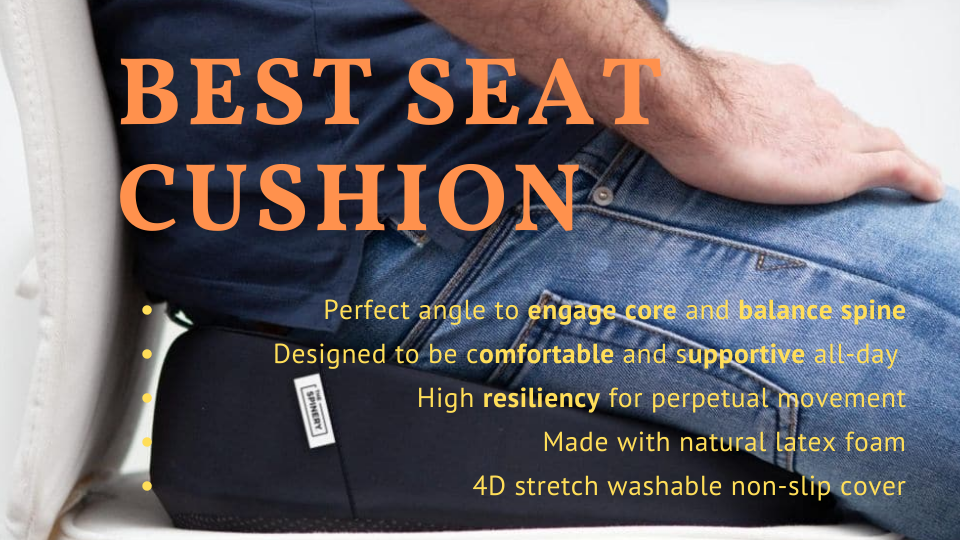
Cushion Benefits | Seat Cushions | Seat Foam
For many people, sitting in the same position for long periods can lead to discomfort and pain in the lower back and spine. Ergonomic seat cushions can help to alleviate this pain by providing support and improving posture. Ergonomic seat cushions for chairs are typically designed to fit the body’s contours and distribute weight evenly, which helps reduce pressure on the spine. In addition, the cushions can help to improve blood circulation and prevent muscle fatigue. As a result, ergonomic seat cushions can effectively improve comfort for those who spend long hours sitting down. The cushions are especially beneficial for those who work desk jobs or have sedentary lifestyles. Choosing a cushion made from high-quality materials that provide firm support is essential for maximum benefit. In addition, the cushion should be adjustable and customized to fit each individual’s needs.
Sources: 1,2,3,4,5,6,7
I’ve written a complete hands-on review about why your stomach is flat until you sit down, and here are some of the shocking issues I ran into in this post!
Best Seat Cushion for Spinal StenosisAxial Ergonomic Seat Cushion® | Seat Chair Wedge
Quick Guide: A 30-Second Summary
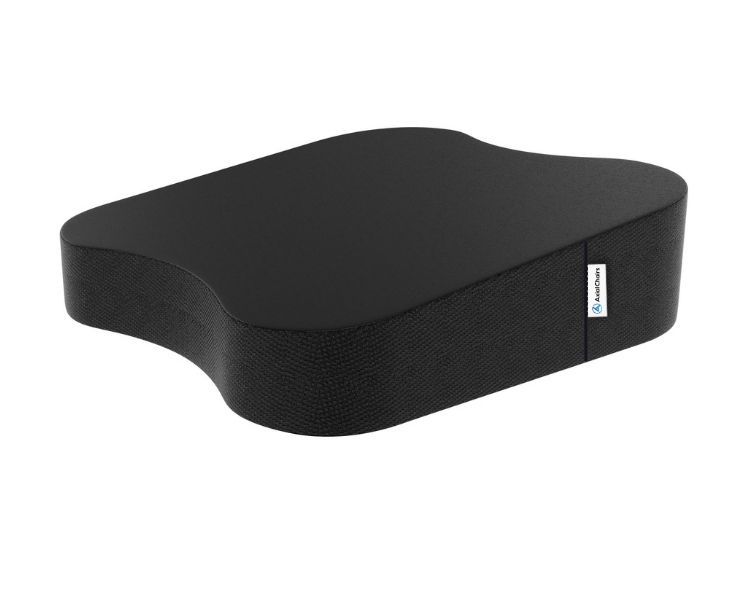
All Day Comfort & Support
Product Name
Axial Designs™ Seat Cushion
Price
$149
Warranty
1 Year
Type
Posture Wedge
Top Layer
100% Natural Latex (Molded)
Bottom Layer
High-Density Foam
Top Material
Isometric Grippy Vegan Leather
Bottom Material
Non-Slip Material
Side Material
3D Breathable Fabric
How to Use an Ergonomic Seat Cushion
For many of us, sitting for long periods is inevitable. Whether we’re working at a desk, driving, or relaxing at home, there are times when we simply have to stay in one place. And while sitting may not seem like a big deal, poor posture can lead to several health problems. From back pain to poor circulation, sitting for too long can take a toll on our bodies. That’s where wedge cushions come in. Providing support and encouraging proper posture and wedge cushions can help reduce the risk of health problems associated with sitting for long periods. So if you’re looking for a way to improve your health and well-being, consider adding a wedge cushion to your life. Your back will thank you! 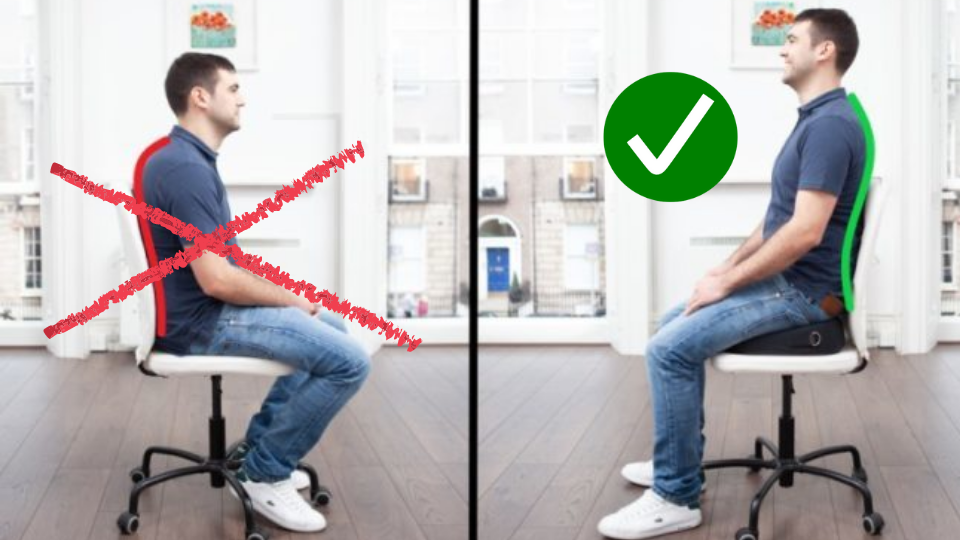
Is Spinal Stenosis the Same as Cauda Equina?
Cauda equina syndrome is a severe condition caused by spinal stenosis, the narrowing of the spinal canal. The condition occurs when the cauda equina nerves are compressed and damaged, leading to neurological severe consequences. Cauda equina syndrome can cause paralysis, incontinence, and sexual dysfunction if left untreated. Early diagnosis and treatment are essential to prevent permanent damage. Treatment typically involves surgery to decompress the nerves. In some cases, physiotherapy or chiropractic care may be recommended to relieve pain and improve function. With prompt treatment, most people with cauda equina syndrome make a full recovery.
Spinal Stenosis When to Go to Hospital

Can Spinal Stenosis Repair Itself
One question I always get asked is ‘Can spinal stenosis get better?’ Although there is no cure for spinal stenosis, there are treatments that can help relieve the symptoms. One of the best things you can do is ensure proper seating. A chair that is too low can put extra pressure on your spine, while a chair that is too high can cause you to slouch, especially if you have lumbar spinal stenosis in a wheelchair. You might also consider using a spine seat to support your back. In addition, regular exercise can help strengthen the muscles around your spine and improve your flexibility. If your symptoms persist despite these measures, your doctor may recommend surgery to relieve the pressure on your spine.
Spinal Stenosis and Cycling
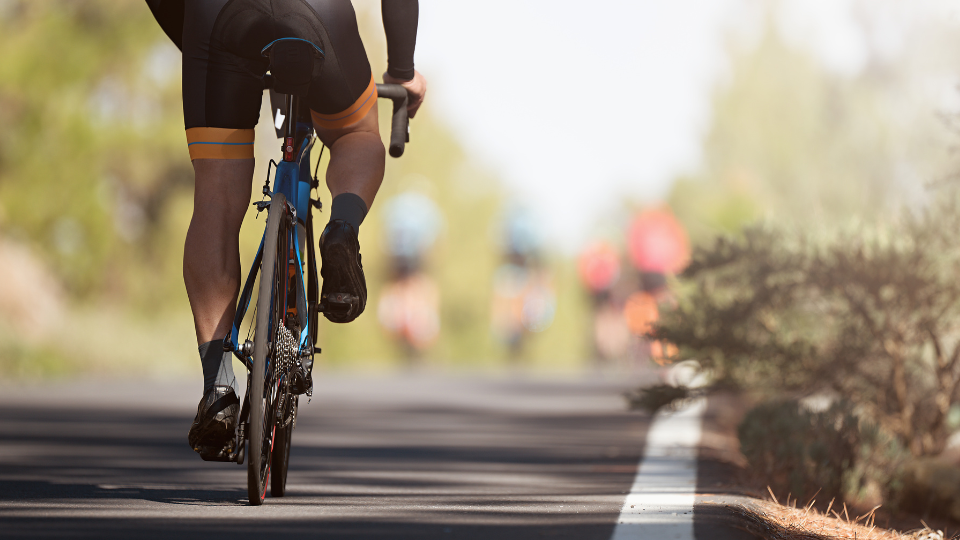
Here is a video I made on Cycling Ergonomics:
Best Orthopedic Seat Cushion for Lower Back Pain
As a chiropractor, I have seen countless patients struggling with lower back pain. The key to alleviating discomfort is providing ample support to the lumbar spine. In my experience, the best orthopedic seat cushion for this purpose is one made of natural latex foam. Unlike memory foam or gel seat cushions, natural latex provides consistent support and durability while promoting healthy posture.
Best Seat Cushions for Lower Back Pain | Chair Cushion
When it comes to seat cushions designed specifically for lower back pain, chair cushions made of natural latex foam are the most effective option. Not only do they offer essential lumbar support, but they also help maintain proper spinal alignment, ensuring long-lasting pain relief. In addition, natural latex foam has the added benefit of being eco-friendly, making it an ideal choice for those seeking a sustainable alternative to memory foam.
Best Seat Cushions for Si Joint Pain | Enhanced Seat
Sacroiliac (SI) joint pain can be debilitating, making it crucial to find a cushion that offers targeted support. Natural latex foam enhanced seat cushions provide optimal comfort and pressure relief for those suffering from SI joint pain. The unique properties of natural latex allow it to conform to the contours of your body without sacrificing support, unlike memory foam which can cause discomfort due to excessive heat retention and lack of breathability.
Best Orthopedic Seat Cushion for Sciatica | Seat
Sciatica is a common issue that can cause severe pain and discomfort in the lower back and legs. To address this, an orthopedic seat cushion made from natural latex foam is an excellent option. By promoting proper posture and providing adequate support, these seat cushions can help alleviate the pressure on the sciatic nerve and offer relief from symptoms. The natural latex material is also superior to memory foam and gel options in terms of durability and longevity.
Best Pillow for Cervical Spinal Stenosis | Seats
Cervical spinal stenosis can lead to pain and discomfort in the neck and upper back. A pillow designed to support the cervical spine is crucial for those experiencing this condition. Natural latex foam seats offer the perfect balance of support and comfort, allowing for better spinal alignment and relief from pain. Moreover, natural latex foam is a more sustainable and eco-friendly alternative to memory foam, making it the ideal choice for those who prioritize both their health and the environment.
When considering cushion price, quality, and effectiveness, natural latex foam is the superior choice for a range of spinal issues. Its durability, support, and eco-friendly properties make it an excellent alternative to traditional memory foam and gel seat cushions.
All Day Comfort & Support
Conclusion
While there are many different seat cushion options on the market, those designed specifically for people with spinal stenosis usually offer the best combination of comfort and support. If you’re experiencing back pain or discomfort related to spinal stenosis, I recommend trying a cushion made of natural latex and high-density foam with an 8-10 degree forward tilt.
Sources:
- Katz, J.N. and Harris, M.B., 2008. Lumbar spinal stenosis. New England Journal of Medicine, 358(8), pp.818-825.
- Melancia, J.L., Francisco, A.F. and Antunes, J.L., 2014. Spinal stenosis. Handbook of clinical neurology, 119, pp.541-549.
- Genevay, S. and Atlas, S.J., 2010. Lumbar spinal stenosis. Best practice & research Clinical rheumatology, 24(2), pp.253-265.
- Lurie, J. and Tomkins-Lane, C., 2016. Management of lumbar spinal stenosis. Bmj, 352.
- Lee, S.Y., Kim, T.H., Oh, J.K., Lee, S.J. and Park, M.S., 2015. Lumbar stenosis: a recent update by review of literature. Asian spine journal, 9(5), p.818.
- Papavero, L., Ebert, S. and Marques, C.J., 2020. The prevalence of redundant nerve roots in patients with lumbar spinal stenosis is body position dependent: a retrospective observational study with repeated measures design in an upright MRI scanner. Neuroradiology, 62(8), pp.979-985.
- Backstrom, K.M., Whitman, J.M. and Flynn, T.W., 2011. Lumbar spinal stenosis-diagnosis and management of the aging spine. Manual therapy, 16(4), pp.308-317.
- Spector, L.R., Madigan, L., Rhyne, A., Bruce Darden, I.I. and Kim, D., 2008. Cauda equina syndrome. JAAOS-Journal of the American Academy of Orthopaedic Surgeons, 16(8), pp.471-479.

